Pope Francis — Environmental Activist?
Students, faculty and staff packed Doheny Library on USC’s University Park campus on Sept. 9 to hear how one of the world’s most beloved religious leaders is shaping the debate on climate change and global environmental policy. The lunchtime discussion featured five panelists: James Heft, Alton M. Brooks professor of religion and president of the Institute for Advanced Catholic Studies; Julien Emile-Geay, assistant professor of earth sciences; David Ginsburg, assistant professor (teaching) of environmental studies; Steven Lamy, professor of international relations and vice dean for academic programs; and Avery McEvoy, USC Environmental Assembly Moderator. The event was co-hosted by the Institute for Advanced Catholic Studies, the USC Caruso Catholic Center and USC Dornsife Academic Programs.
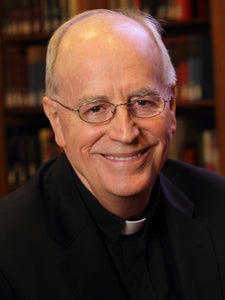
Father James Heft, Alton M. Brooks professor of religion and president of the Institute for Advanced Catholic Studies, on why the Pope published an encyclical on climate change:
“I would say there are basically three reasons why he did so. The first is religious — the notion common to Jews, Christians, Muslims, that we are not landlords — we are tenants. The creation is something we should take care of, not abuse.
“The second reason is the actuality: Science is raising an alarm and saying there are things here that we have to look at very closely that are going to affect everybody. It is already affecting everyone.
“The third reason is ethical. I think the Pope’s preoccupation from the beginning has been the impact on the poor and the poor usually bears the brunt of environmental degradation.”
Avery McEvoy, a junior majoring in environmental engineering at USC Viterbi School of Engineering and director of advocacy on the executive board of USC Environmental Student Assembly, on the urgency of confronting climate change:
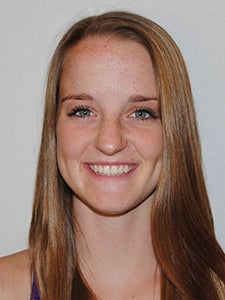
“The first quote that really inspired me (in the encyclical) was, ‘Young people demand change. They wonder how anyone can claim to be building a better future without thinking of the environmental crisis and the sufferings of the excluded.’ I think this quote perfectly encapsulates the millennial consciousness. It’s been said many times that our generation we will have to deal with all the repercussions of all the different effects that humans have had on the environment. We are going to have to be more proactive and progressive about doing something about our past behavior. This really spoke to me because I identified with it and it gave me a little more hope. It showed the spreading sense of urgency that millennials have.”
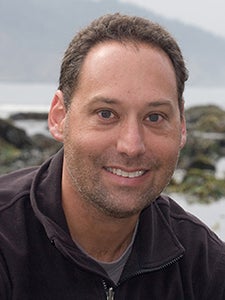
David Ginsburg assistant professor (teaching) of environmental studies, on how addressing climate change and its causes is a moral issue:
“The environment isn’t just the environment per se, it’s a moral issue and we have to move beyond the science and look at how we are actually affecting the environment itself. There are a lot of other mixed issues out there such as poverty and how rich countries, poor countries and developing countries work together.”
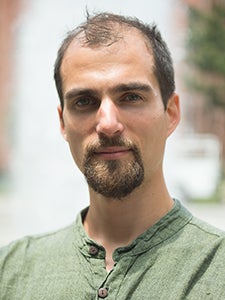
Julien Emile-Geay, assistant professor of earth sciences, on the importance of science in the encyclical and our responsibilities on Earth:
“(The encyclical) is a very scholarly document, very well-referenced. It’s nice to know that to some extent Pope Francis is applying a scientific method, despite all the artificial conflict that we often see between faith and reason and science and religion. He is standing on the shoulders of giants. Who are these giants? Well, he has an advisory council and he is also building upon the overwhelming scientific consensus on climate change. He is not going at it alone. It’s not just, ‘I am the Pope and I have the authority to speak about this.’ It is, ‘I am a man of reason and I read what the best scientific evidence says,’ and he is there to channel it to a constituency that doesn’t often receive it this way. So I think it is tremendously important that a faith leader is taking on this role.
“Also, he pegs much of our current suffering on a big misunderstanding — our role on this planet. The idea that is common to many Christian traditions that we are special creatures who are somehow above the rest of the animals gives us great power, but the Pope reminds us that it also gives us great responsibility. So the dominion of the Earth should not be taken as a license to fully exploit our environment, but, on the contrary, to be responsible stewards of our time.”
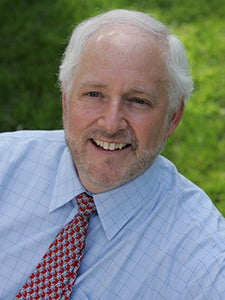
Steven Lamy, professor of international relations and vice dean for academic programs, on consumerism’s role in environmental change:
“You have to keep that in mind the fact that you are making choices today that will impact future generations. That is the foresight capacity — a simple notion that we have to consider in terms of the well-being of future generations when we make our economic and political decisions as well as our lifestyle choices. And this is where consumerism comes in, in what Christopher Lasch, the American historian, referred to as ‘the ceaseless translation of luxuries into necessities.’
“The Pope raises this in terms of his global consumer society and our dependence on technology and fossil fuels. The Pope’s words are, ‘We have succumbed to a technological paradigm.’ He argues for productive diversity. That is an economy that is not just controlled by large corporations but that has diversity in terms of production and consumption of resources. This is not a discontinuation of the global economy but understanding that there is not an infinite supply of resources and we need to consider that in our discussions.”